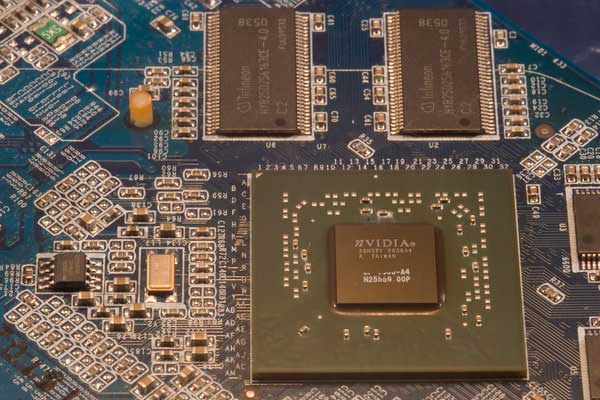Malaysia is rapidly emerging as a prominent destination for substantial foreign investments from global semiconductor players. Most recently, Nvidia Corporation, the US-based giant in artificial intelligence (AI) chips, unveiled plans for a potential $4.3 billion data center in Malaysia. Nvidia CEO Jensen Huang emphasized Malaysia’s potential as a prime hub for data center infrastructure in Southeast Asia.

Tech Investments Align With Malaysia’s Regional Hub Ambitions
Notably, Nvidia’s announcement aligns with a broader trend, as tech giants like Intel and Infineon also declared intentions to reinvest in Malaysia. Consequently, Malaysia is solidifying its position in Southeast Asia as a hub for the booming semiconductor industry.
In recent decades, Malaysia has grappled with political instability, hindering economic progress. However, since Anwar Ibrahim assumed leadership as the new Prime Minister in late 2022, the country has maintained stability, supporting continued economic growth.
Overcoming a History of Political Uncertainty
In 2018, Malaysia experienced its first change of political regime in modern history. The United Malays National Organization (UMNO) and its Barisan Nasional coalition lost power for the first time since independence in 1957.
Subsequently, Malaysia saw two more changes in government over four years, with three different prime ministers leading three distinct administrations. This period of weak and unstable governance posed obstacles to economic development.
Countries plagued by political instability face challenges that impede economic progress and adversely impact society. Development projects are often discontinued when governments change, representing a substantial waste of resources. Billions may be spent on now-abandoned projects, financially burdening the government.
Political uncertainty also deters foreign and domestic investments, restricting capital inflows. Investors are reluctant to commit funds when instability prevails.
Malaysia Defies Expectations with Economic Resilience
Despite enduring over three years of political turbulence, Malaysia’s economic resilience has defied expectations. The nation’s economic outlook remains robust, with solid growth, minimal risk in government debt refinancing, and successful absorption of consecutive shocks.
On a quarterly basis, Malaysia’s GDP exhibits an upward trajectory, expanding by 2.6% in Q3 2023. This follows growth rates of 1.5% in Q2 and 0.9% in Q1, representing a turnaround from the 1.7% contraction in Q4 2022.
Malaysia is on track to meet its 4% growth target for 2023, propelled by robust domestic spending, improved labor conditions, and a tourism rebound. Forecasts indicate 4-5% expansion in 2024.
Global Tech Giants Deepen Investments
Beyond Nvidia’s ambitions, Intel Corporation has reaffirmed its commitment to Malaysia by investing over MYR 30 billion to expand operations. As a pioneer in Malaysia’s electrical and electronics industry since 1972, Intel anticipates creating over 4,000 direct jobs and 5,000 construction jobs.
Additionally, Germany’s Infineon Technologies plans to invest $5.5 billion expanding its facility in Malaysia, aiming to manufacture chips for electric vehicles. This project would create the world’s largest 200mm silicon carbide fabrication plant.
Advanced discussions are also underway between Nvidia and Malaysian firm YTL, focusing on AI infrastructure including supercomputers and cloud computing. This proposed $4.3 billion project would fortify Southeast Asia’s growing AI ecosystem while cementing Malaysia’s status as a global semiconductor hub.
Overcoming Structural Weaknesses to Unleash Economic Potential
In recent decades, Malaysia has grappled with persistent structural challenges hindering its economic potential. Issues like convoluted regulations, limited innovation and technology adoption, lack of skilled labor, overreliance on low-wage foreign workers, and regional income inequality have stagnated growth.
To propel advancement and prosperity, Malaysia must achieve two pivotal goals:
Political Stability: As the bedrock for effective governance and economic planning, political stability is paramount. Malaysia appears to have maintained stability under PM Anwar Ibrahim’s new coalition government.
Racial Harmony: Simultaneously, the country must foster social cohesion and unity among its diverse ethnic communities to unlock economic potential.
By surmounting these twin challenges of discord and instability, Malaysia can break from its economic shackles to compete globally. With substantial investments flowing in from tech titans like Nvidia and Intel, the country’s future remains hopeful.
